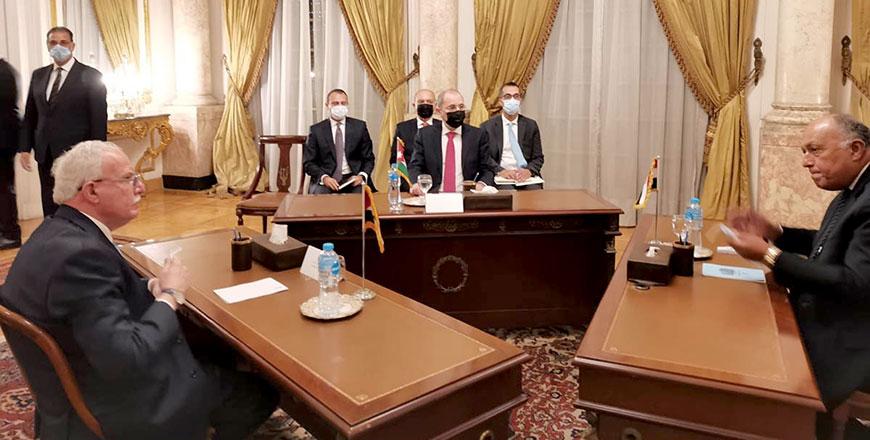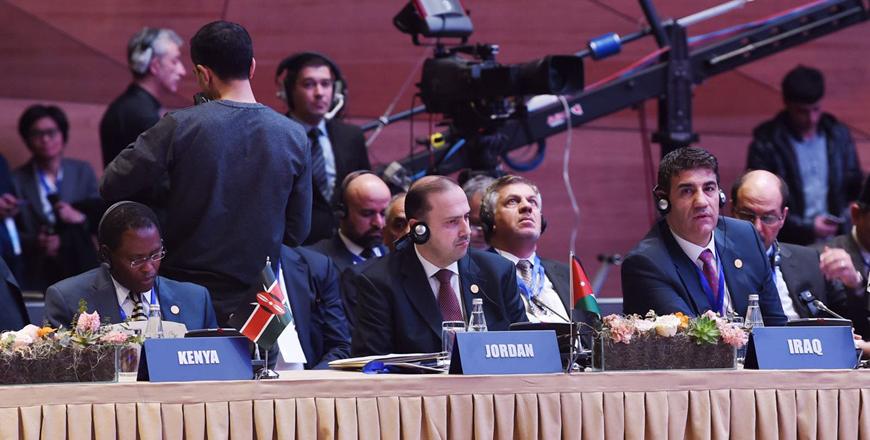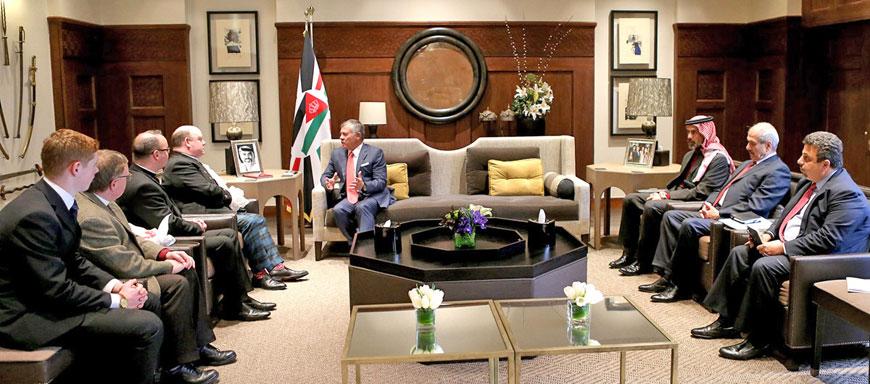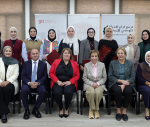You are here
Safadi, Egypt, Palestine FMs discuss measures to advance peace process
By JT - Sep 09,2021 - Last updated at Sep 09,2021

Deputy Prime Minister and Minister of Foreign Affairs Ayman Safadi, Egypt’s Foreign Minister Sameh Shoukry and Palestine’s Foreign Minister Riyad Al Malki on Thursday held a tripartite meeting in Cairo, as part of the ongoing coordination on the developments of the Palestinian cause (Petra photo)
AMMAN — Deputy Prime Minister and Minister of Foreign Affairs Ayman Safadi, Egypt’s Foreign Minister Sameh Shoukry and Palestine’s Foreign Minister Riyad Al Malki on Thursday held a tripartite meeting in Cairo, as part of the ongoing coordination on the developments of the Palestinian cause.
The trilateral meeting is part of the efforts to follow up on the outcomes of the Jordanian-Egyptian-Palestinian summit, which took place in Baghdad in early September, the Jordan News Agency, Petra, reported.
The summit aims to operationalise efforts towards resuming negotiations, work with partners to revive the peace process in accordance with the approved terms of reference, as well as to coordinate each other’s positions before the 76th session of the United Nations General Assembly.
Safadi, during the meeting, called for intensifying all efforts aimed to “find a political horizon” and return to “serious and effective negotiations” based on the two-state solution and that embody the independent, sovereign Palestinian state with Jerusalem as its capital on the June 4, 1967 lines, according to international law and the Arab Peace Initiative.
Safadi and his Egyptian and Palestinian counterparts discussed means to push stakeholders towards the peace process, stressing that the Palestinian cause is the central Arab issue. They emphasised that the relevant international legitimacy resolutions and the Arab Peace Initiative constitute a reference point for negotiation, “the sole way to realise peace”.
The three ministers agreed to mobilise regional and international positions against the illegal Israeli measures in Jerusalem, Gaza and the occupied Palestinian territories, notably practices in violation of international law that undermine the two-state solution and the opportunities to achieve a just and comprehensive regional peace.
The top officials also stressed the necessity of maintaining the legal and historical status quo at Jerusalem and its Islamic and Christian holy sites, and rejecting all practices that affect the status quo.
They also stressed the importance of the Hashemite Custodianship over the Muslim and Christian holy sites in Jerusalem, highlighting its role in protecting the holy shrines’ Arab, Muslim and Christian identity.
Related Articles
AMMAN — Jordan is committed to its deep-rooted stances regarding the enhancement of international peace and security and spreading stability
Following is the final communiqué issued Monday of the ëRoad to Jerusalemí Conference held in Amman last week:
AMMAN — His Majesty King Abdullah on Sunday met with the Moderator of the General Assembly of the Church of Scotland Minister Derek Browning

















